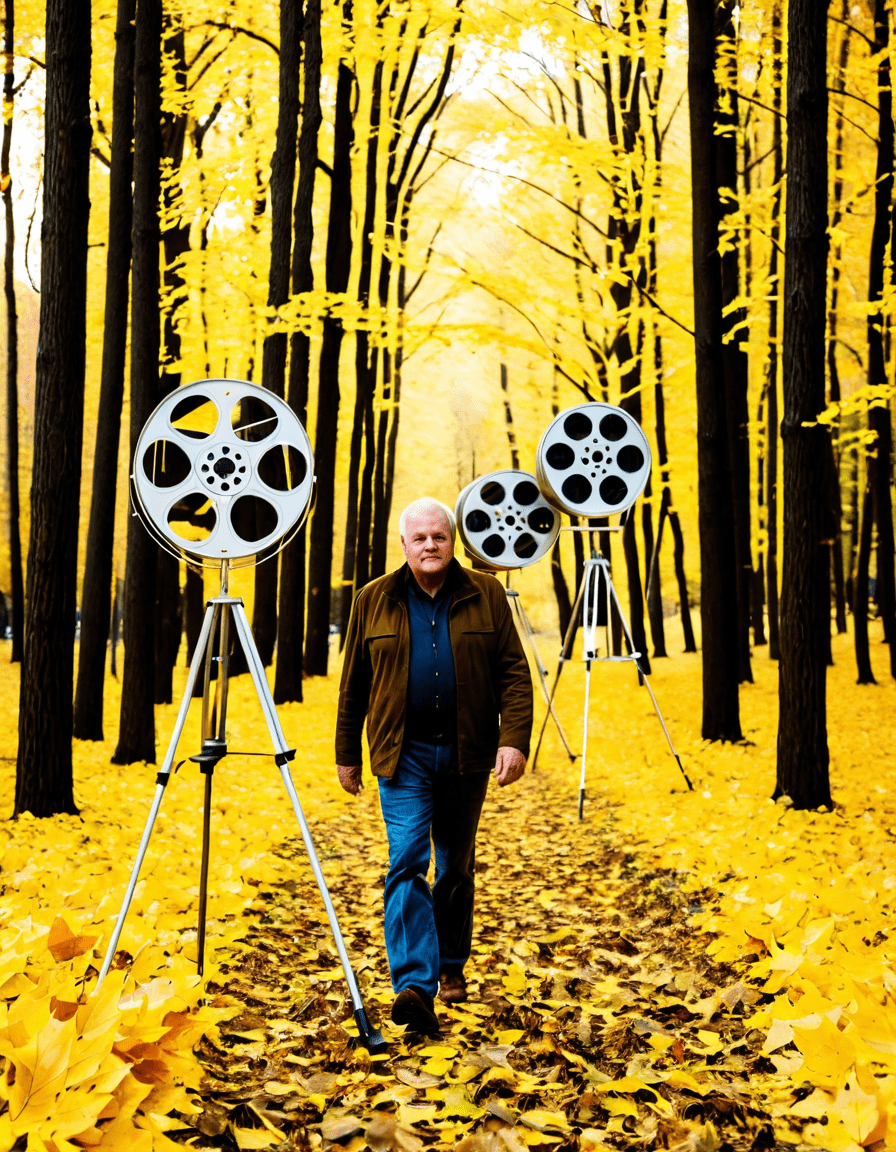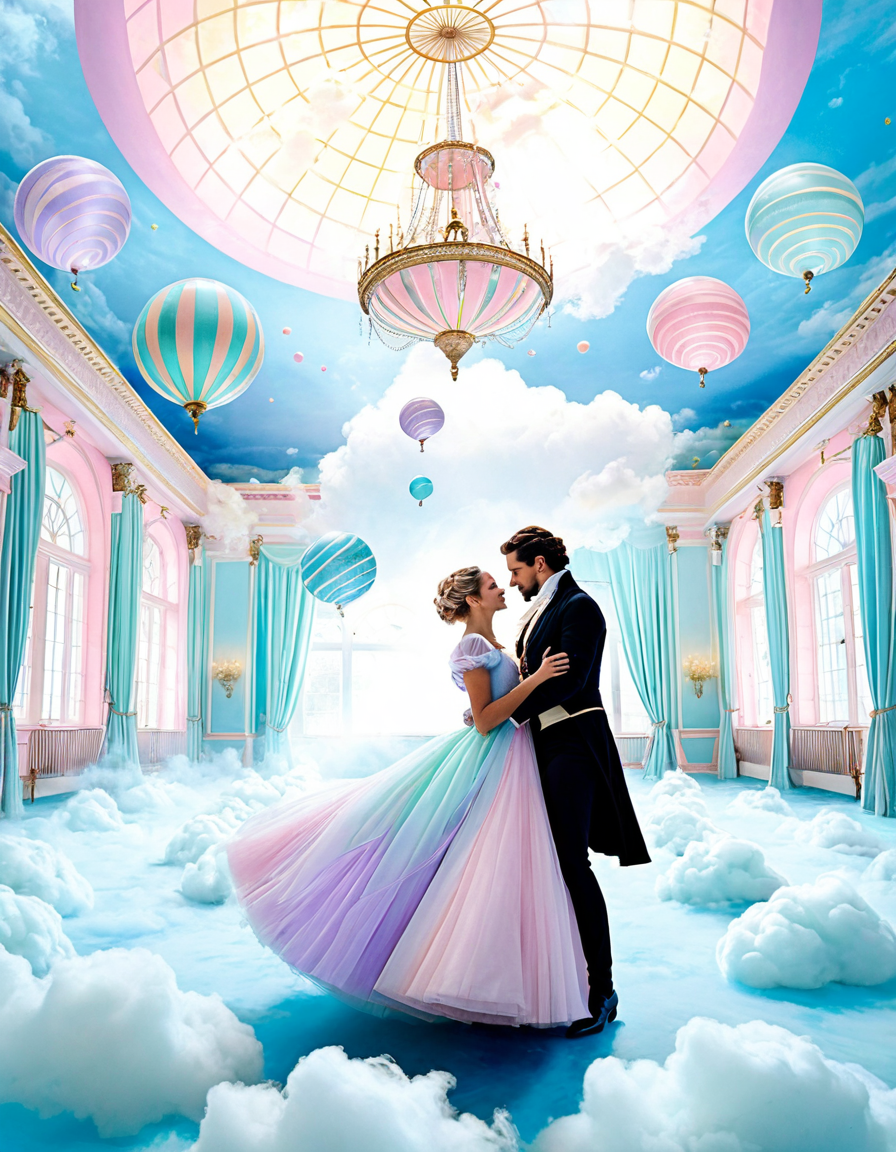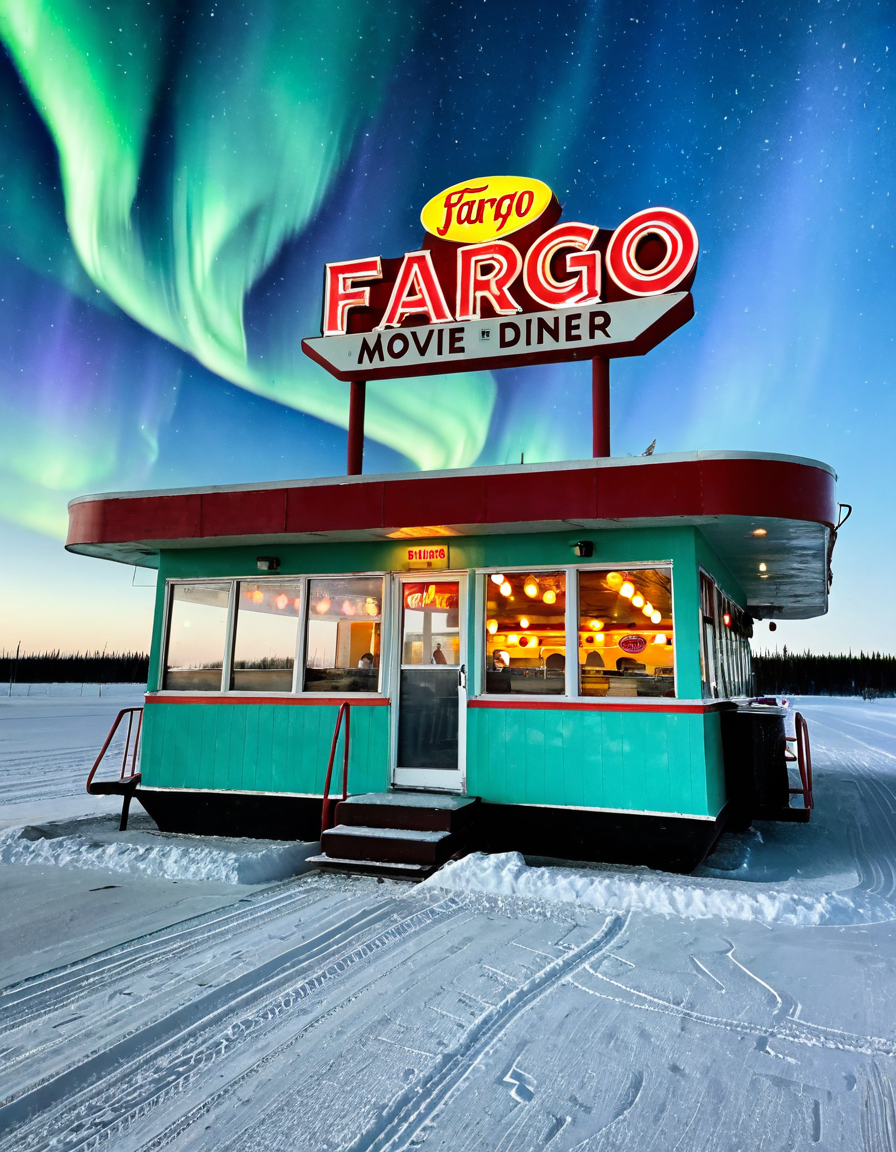The 1974 classic “Chinatown” stands as a pivotal point in the history of film noir, invigorating the genre with its intricate plot, moody aesthetic, and exceptional performances. Starring Jack Nicholson, Faye Dunaway, and John Huston, the movie’s foundation lies within the fraught water politics of 1937 Los Angeles. Today, let’s take a stroll down the shadowy alleys of this masterpiece, acquainting ourselves with the unforgettable Chinatown cast that brought sordid Los Angeles crime to vivid life on the silver screen.
The Enduring Legacy of Jack Nicholson as J.J. “Jake” Gittes
Jack Nicholson’s portrayal of J.J. “Jake” Gittes is nothing short of a cinematic marvel. Smearing charm and wit with a brush of moral ambiguity, Nicholson’s performance is a true north in film noir history. As Gittes, Nicholson navigates a labyrinth of lies and deceit with the finesse of a seasoned detective, delivering lines that drip with the perfect cocktail of irony and earnestness. Watching him unravel the knotty threads of the Chinatown plot, one can’t help but marvel at how Nicholson’s articulation of Gittes leaves a stamp on our memory, making it impossible to discuss film noir without tipping our hats to this icon.
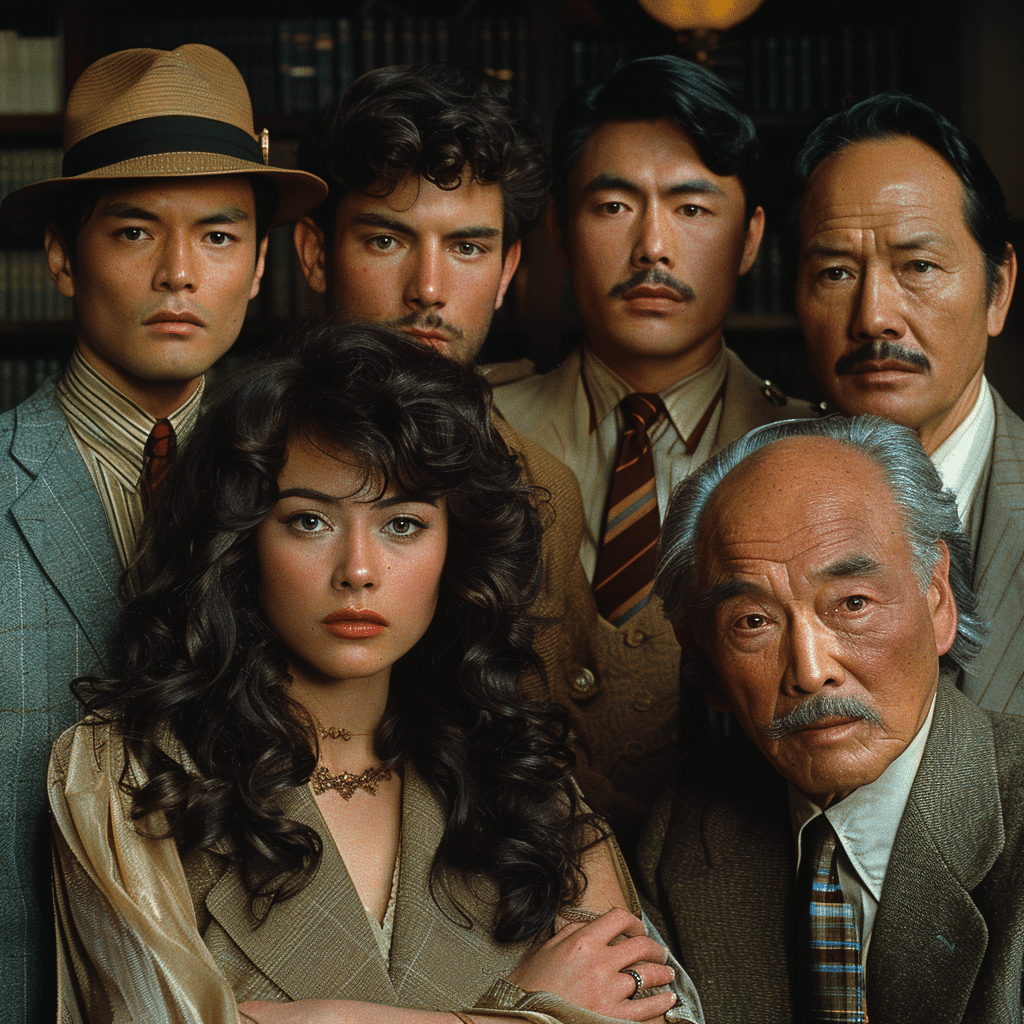
Faye Dunaway: The Enigmatic and Tragic Femme Fatale
Faye Dunaway, as Evelyn Mulwray, transcends the typical femme fatale mold to deliver a performance rich with vulnerability and mystery. Dunaway pulls us into Evelyn’s tortured soul with abandon, compelling us to empathize even as we’re held at arm’s length. Her ability to oscillate between poise and fragility makes her character’s plot twist—that of simultaneously being Katherine’s sister and daughter, a secret borne of her father’s abuse—resonant and heartbreaking. Dunaway’s role in the Chinatown cast challenges the black-and-white moral ambiguities of traditional film noir, leaving us with a performance hauntingly beautiful in its tragedy.
| Role | Actor | Character Description |
|---|---|---|
| J.J. “Jake” Gittes | Jack Nicholson | Private investigator who specializes in infidelity cases; he becomes entangled in a web of personal and political scandals surrounding LA’s water supply. |
| Evelyn Mulwray | Faye Dunaway | The enigmatic and distressed daughter of Noah Cross, who harbors a dark family secret; she tries to protect her daughter Katherine from her father. |
| Noah Cross | John Huston | The corrupt and powerful tycoon who is at the heart of the water dispute; he is also revealed to be Evelyn’s father and grandfather to Katherine. |
| Lt. Lou Escobar | Perry Lopez | An LAPD lieutenant and former colleague of Gittes from his days on the force, Escobar is involved in investigating the case Gittes is wrapped up in. |
| Russ Yelburton | John Hillerman | An executive with the Los Angeles Department of Water and Power, entangled in the corruption. |
| Lawrence Walsh | Joe Mantell | An associate of Gittes at his private investigation firm who helps with surveillance and information gathering. |
| Ida Sessions | Diane Ladd | A woman who impersonates the real Mrs. Mulwray and becomes involved in the case Gittes is investigating. |
| Katherine Cross | Belinda Palmer | The young girl at the center of the dark family secret; she is both daughter and sister to Evelyn. |
| Sophie | Nandu Hinds | Evelyn Mulwray’s maid, a minor character who provides private information to Gittes. |
| Man with Knife | Roman Polanski | A small but memorable role of a thug who slits Gittes’ nose for being “nosy.” |
John Huston’s Ominous Presence as Noah Cross
John Huston infuses Noah Cross, the story’s lurking shadow, with an omnipotence that’s as subtle as it is disturbing. His ominous presence in the Chinatown cast, a symbol of unchecked power and corruption, moves like a quiet storm through the narrative. Huston’s Cross is more than just a villain – he is a force, the eye of a moral hurricane that sweeps everyone into its destructive path. His understated performance is a perverse waltz between charm and malevolence, and it is his character that eventually pulls the final, crushing twist.
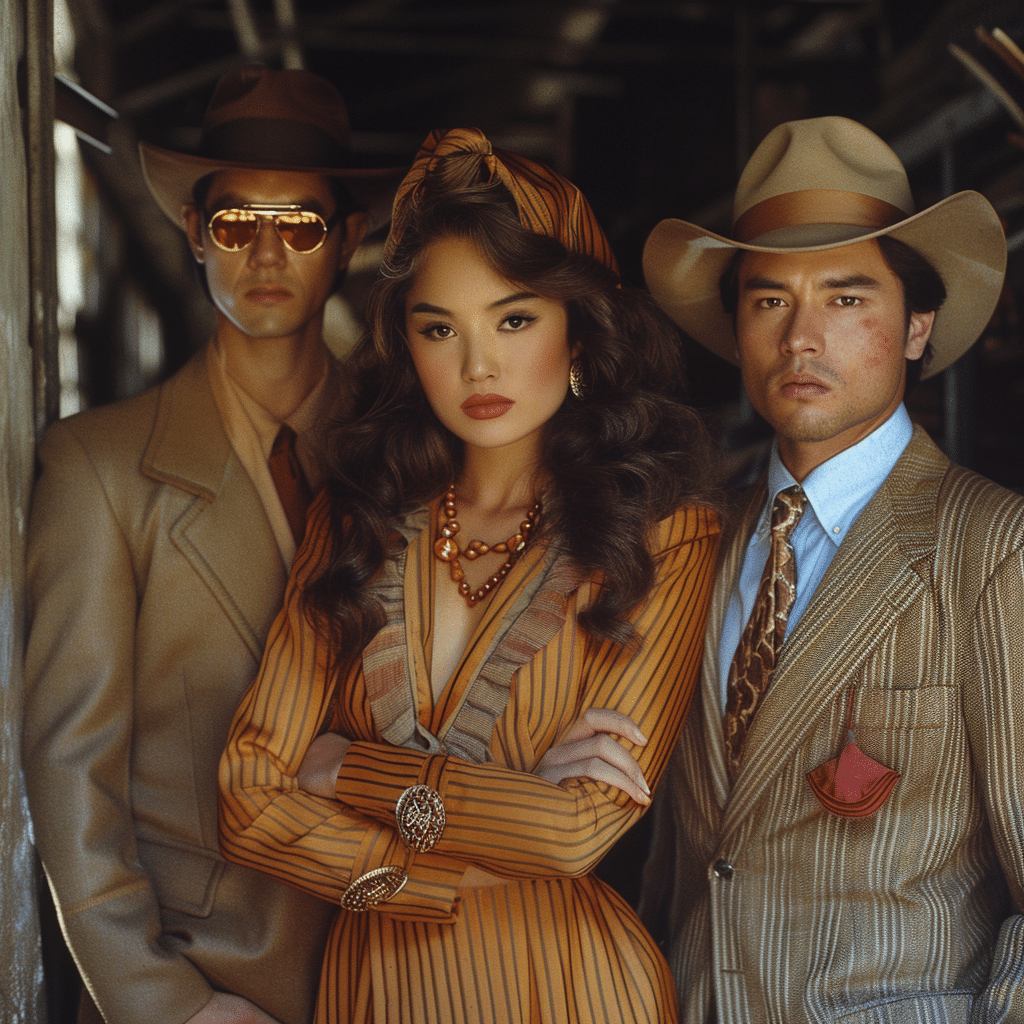
Supporting Cast: Unearthing the Unsung Heroes
While the luminaries of the Chinatown cast capture much of the acclaim, let’s not overlook talents like Perry Lopez, embodying Lieutenant Lou Escobar with a gritty authenticity, or John Hillerman, who as Russ Yelburton, adds a layer of bureaucratic sleaze. These characters are the unsung heroes of Chinatown, their performances adding dimensions to this noir tapestry. With each supporting role expertly played, they prove that the devil—and often the delight—is indeed in the details.
“Chinatown” in Context: The Impact of Film Noir Aesthetics
The film’s aesthetic is a dialogue between the past and the present, an interplay highlighted by the Chinatown cast’s ability to navigate the shades of film noir with modern sensibility. From smog-blanketed LA streets to the strategic use of shadow and light, each scene interacts with the cast like a dance partner, enveloping them in an atmosphere that’s unmistakably film noir yet curiously avant-garde. The texture of this film is not one-dimensional; its depth is courtesy of an ensemble both rooted in genre tradition and boldly progressive.
Behind the Camera: The Craftsmen Who Shaped the Performances
The craftsmanship of director Roman Polanski, writer Robert Towne, and cinematographer John A. Alonzo set the stage for the magic wielded by the Chinatown cast. Polanski’s directorial hand, both firm and creative, untangled the complex narrative without sacrificing its suspenseful pulse, while Towne’s script provided the canvas for Alonzo’s capturing of LA’s deceptive allure—the perfect playground for the actors’ exploration of the human condition.
Chinatown’s Influence on Modern Cinema and Television
“Chinatown” has left its indelible mark on the canvas of contemporary entertainment, with TV dramas and cinematic tales often nodding to the complex character arcs and moral conundrums pioneered by the Chinatown cast. The film’s influence snakes through current storytelling, with echoes of Jake Gittes or Evelyn Mulwray surfacing in characters grappling with their own moral mazes. This movie laid down the gauntlet for nuanced character development, and its legacy lives on in the DNA of today’s most beloved shows and films.
Now folks, as we draw the curtain on our journey through the icons of film noir, reflect on the intricate web the Chinatown cast wove—a tapestry that captures the very essence of the human spirit through its storytelling. These performances didn’t just captivate; they catapulted the genre into a new epoch. “Chinatown” is a cornerstone that reminds us how powerful a nuanced character can be in mirroring and molding our understanding of life’s complex dance of light and shadow.
Beyond the Shadows: The Chinatown Cast
You might think you know everything about the classic film noir, but hold onto your fedoras – the “Chinatown cast” holds some intriguing secrets that are as twisty as the movie’s plot! Did you know that before Jack Nicholson became the iconic J.J. “Jake” Gittes, he was just another hopeful actor swimming in Hollywood’s deep pool of talent? Speaking of pools, while the characters navigated the murky waters of corruption in “Chinatown,” the real stars might have preferred a refreshing dip at the Circa pool, escaping the underbelly of the LA they portrayed.
Diving further into the ensemble, you won’t find Stephen Collins on the billing, but you would catch the glimpse of the then up-and-coming Diane Ladd. She may not have belted out Cinderella Snapped Lyrics as her daughter Laura Dern did years later, but she certainly snapped to attention with her brief on-screen moments. Her talent shimmered subtly, much like the hidden nuances found within the cinderella snapped lyrics.
Let’s ruffle through the pages of the casting directory a bit more, shall we? You wouldn’t think “Chinatown” has anything to do with Taylor Swift dating news or Wwe raw Results, but here’s where it gets interesting! As these modern-day celebs drum up all the buzz, the film’s cast members were generating their own headlines back in the day—sans the social media frenzy. It’s a quirky thought—a noir detective pausing mid-investigation to check the latest WWE pin-down or who’s Taylor Swift’s latest beau. But hey, multiple timelines can make the imagination run wild!
And now for a slice of trivia as delicious as a meal at a Nigerian restaurant🙁 the film’s costume designer, Anthea Sylbert, was a beacon of style, setting the trend much like Chloe Malle does with her articles today. Sylbert’s vision for the garment elegance in “Chinatown” deserves applause. Speaking of style MVPs, have you ever heard of Elena Delle donne? While she’s scoring on the basketball court rather than the silver screen, both she and the cast were masters in their moves—be it a feint on the court or Faye Dunaway’s nuanced portrayal.
Every tidbit about the “Chinatown cast” is a stray piece of a jigsaw, revealing how art and life can sometimes shadow-dance with each other, blurring the lines between roles and reality. As you stroll through the labyrinthine narratives of their careers, savor these savory bits of trivia—they’re a testament to the tapestry that is Hollywood’s rich history.
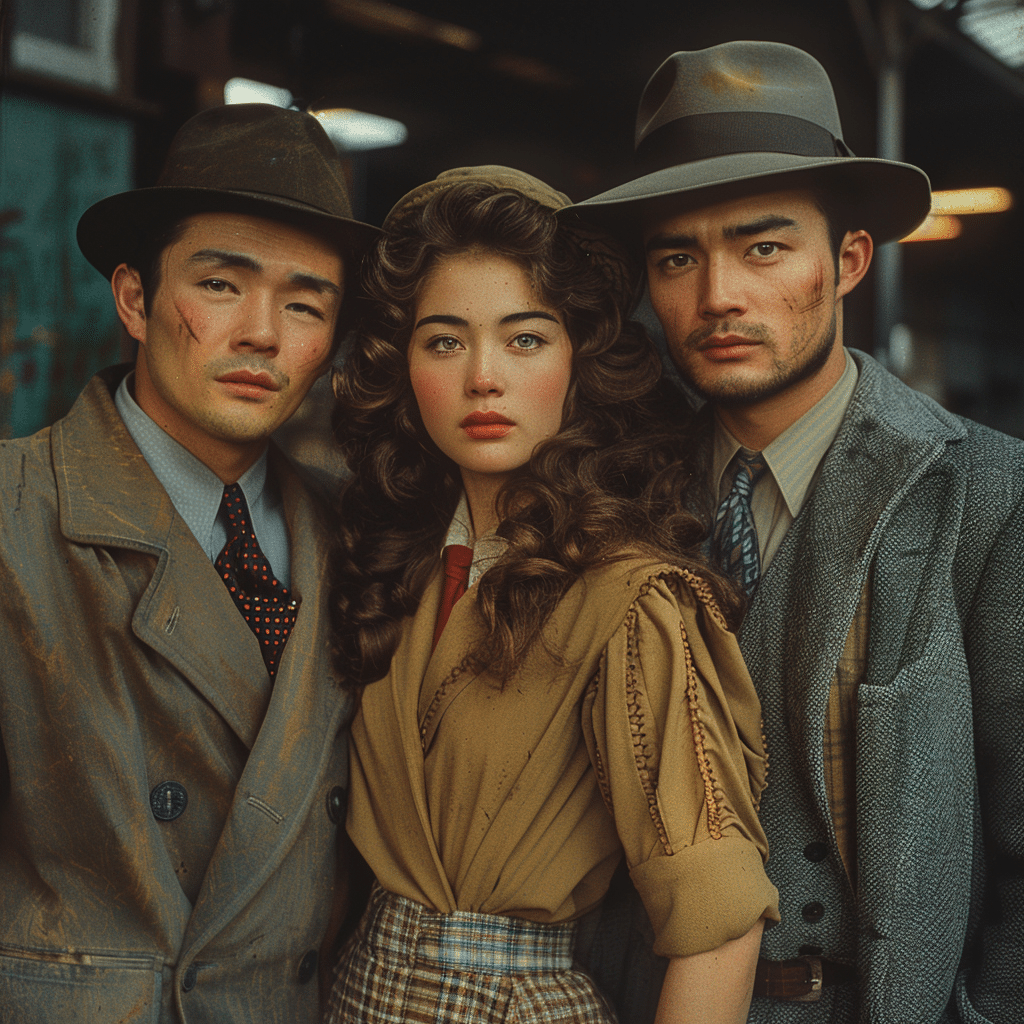
Was Chinatown Based on a true story?
Sure, Chinatown was inspired by the real-life California Water Wars, a series of disputes over water in Southern California during the early 20th century.
What happened to Katherine in Chinatown?
Katherine ends up in the clutches of her grandfather, the villainous Noah Cross, after her mother, Evelyn, is tragically shot by the police while trying to escape.
What is the twist in Chinatown?
The big twist is the shocking revelation that Katherine is both the daughter and sister of Evelyn Mulwray. This comes to light when Evelyn breaks down and admits that her father sexually assaulted her, leading to Katherine’s birth.
What did Jake whisper at the end of Chinatown?
In the film’s final moment, Jake Gittes is told by his associate, “Forget it, Jake. It’s Chinatown,” as a way to make him let go of the darkness and corruption he’s uncovered since it’s beyond his control.
How much of the movie Chinatown is true?
While the film captures the essence of the California Water Wars, it fictionalizes the events with its own plot and characters. It’s not a documentary but a dramatization influenced by true events.
Why did Chinatown dump water?
The water was being dumped in Chinatown as part of a scheme by the villain, Noah Cross, to create a drought. This would force farmers to sell their land cheaply, after which he’d irrigate it and make a fortune.
Who is the villain in Chinatown?
Noah Cross, played by John Huston, is the main antagonist of Chinatown. He manipulates water supply to enrich himself at the expense of the general public.
Who was the fake Mrs Mulwray?
The woman posing as Mrs. Mulwray is actually Ida Sessions, an impersonator hired to set up Hollis Mulwray in a fake scandal.
What is the relationship between Katherine and Evelyn in Chinatown?
Katherine is the troubled fruit of a dark family secret, as she is both the daughter and sister of Evelyn Mulwray. This unsettling situation is due to the incestuous assault from their mutual father, Noah Cross.
What was the original ending to Chinatown?
Initially, the screenplay called for a happier ending, with Evelyn shooting and killing her father to protect Katherine. This was later changed to the more bleak outcome in the final cut.
Who is the femme fatale in Chinatown?
Evelyn Mulwray, played by Faye Dunaway, serves as the movie’s femme fatale. Her mysterious and seductive nature draws the protagonist into a web of intrigue and danger.
Where did they film Chinatown?
Chinatown was mostly filmed in and around Los Angeles, California, capturing the essence of the city and era it depicts.
What is the famous line in Chinatown?
“It’s Chinatown” is arguably the most legendary line from the movie, epitomizing the theme of inescapable corruption and the futility of good intentions against it.
Was there a sequel to the movie Chinatown?
Yes, the movie got a sequel titled “The Two Jakes,” released in 1990, with Jack Nicholson not only reprising his role as Gittes but also directing the film.
How many years between Chinatown and the Two Jakes?
The sequel “The Two Jakes” came out 16 years after Chinatown, with its release in 1990 following the original’s 1974 debut.









